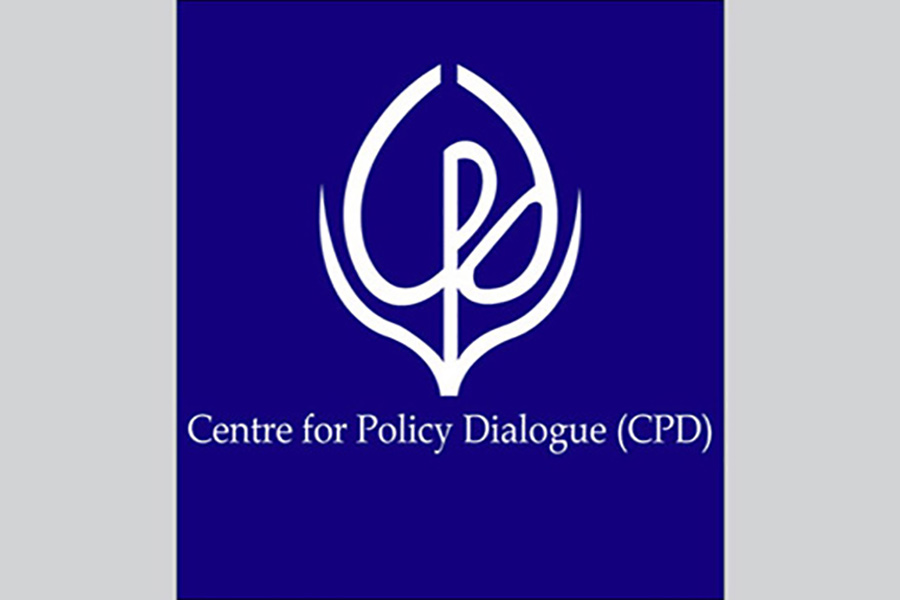A slew of factors hindering social insurance execution
New platform SIF launched to facilitate discussion on issues affecting implementation

Published :
Updated :

A new platform, Social Insurance Forum (SIF), has been launched to facilitate discussion on issues affecting implementation of the National Social Insurance Scheme (NSIS).
The Centre for Policy Dialogue (CPD) in association with German cooperation agency GIZ GmbH established the forum against the backdrop of the insurance scheme's implementation gaps, including absence of universal definition of social insurance.
Speaking at the inception of SIF, CPD Research Director Dr Khondaker Golam Moazzem shared the findings of a study on NSIS implementation status at an event in the city on Thursday.
The study identified factors hindering implementation of the insurance scheme included absence of a central integrated framework and a central body to formulate related laws, collecting and managing funds, and overseeing the service providers.
Other factors listed are: absence of service providers for different SI schemes, unskilled manpower, lack of actuaries, absence of scheme-wise laws, rules, regulations (except universal pension scheme), and mistrust about insurance schemes.
Parveen Mahmud, a member of the CPD Board of Trustees and chairperson of the Board of Governors at the RDRS Bangladesh, chaired the dialogue, saying that introduction of social insurance in Bangladesh has numerous advantages, such as preventing specific groups from falling into poverty and safeguarding against income loss due to factors like old age, disability, and unemployment.
Mr Moazzem pointed out that Social Insurance (SI) is a government-backed initiative that offers financial aid and protection to individuals or groups facing social risks like illness, disability, unemployment, old age, and maternity.
Its purpose is to alleviate the economic impact of such events on individuals and families. However, a suitable design for the NSIS is yet to be developed, he noted.
Although the ministries are consistently organising regular meetings and workshops on the National Social Security Strategy (NSSS), there is still a notable absence of widespread discussions specifically focused on the NSIS.
Additionally, the visible progress on the implementation of NSIS seems to be limited or not readily apparent, he said, adding that a pension scheme has been introduced, but the level of participation is currently insignificant.
"The SIF is committed to discussing the gaps and implementation challenges aiming to provide insightful recommendations for overcoming these hurdles," Mr Moazzem said.
He added that the SIF aims to bridge knowledge gaps, facilitate framework development, establish networks with stakeholders, and track progress in thematic areas.
He emphasised the need for clarity of organisational and operational workflows to enhance comprehension and implementation.
To facilitate framework development, he suggested providing a platform to facilitate collaborative discussions and idea exchange to enhance the creation of robust frameworks.
Guidance and resources should be offered to streamline the process of developing effective frameworks aligned with the NSSS objectives.
Regarding networking with stakeholders in NSSS implementation, he suggested establishing effective communication channels and collaboration among key participants.
This includes hosting events to foster relationships, share best practices, and collectively address challenges, aiming to create a cohesive community with a synchronised approach to social insurance initiatives.
"Social insurance is for everyone; it is not only for the poor because each one of us can experience unemployment, sickness, and aging," said Dr Silvia Popp, Project Manager of Employment Injury Protection Scheme for Workers in the Textile and Leather Industries (EIPS) at GIZ GmbH.
Syed Saad Hossain Gilani, chief technical advisor at ILO Bangladesh Office, said several countries with lower GDP and per capita income than Bangladesh are successfully implementing social insurance despite constraints and are reaping its benefits.
"Bangladesh, however, lags behind in this dimension," he said, stressing the need for developing institutional capacity and discussions on credibility as there are issues of mistrust among the beneficiaries.
Arinjoy Dhar, Senior Director at BRAC Microfinance, stressed on multiple income sources to encourage people towards insurance schemes, saying that during crises like the COVID-19 pandemic or the death of a breadwinner, poverty exacerbates.
"It is crucial for individuals to have multiple income sources to better cope with these economic shocks," he added.
"Insurance currently covers almost all age groups, except for individuals aged 15-69. We still need to think about how this age group will be covered by social insurance," said Aminul Arifeen, Programme Manager of Social Protection Policy Support (SPPS) and Acceleration SDGs, UNDP Bangladesh.
Muhammad Musharraf Hossain Bhuiyan, former cabinet secretary, emphasised the significance of inter-governmental coordination as well as coordination with development partners.
"In Bangladesh, we encounter various religious and social taboos, and as a characteristic trait of Bangladeshis, we exhibit resilience and a lack of strong interest in insurance products," said Shubasish Barua, Head of Impact Business at Green Delta Insurance.
Now is the time to eliminate these barriers, both on supply and demand sides, and foster a more inclusive understanding of insurance, he noted.
Distrust in the insurance industry has grown due to cases where individuals lost their money without any corresponding reimbursement, said ABM Sadiqur Rahman, deputy secretary at the social welfare ministry.


 For all latest news, follow The Financial Express Google News channel.
For all latest news, follow The Financial Express Google News channel.